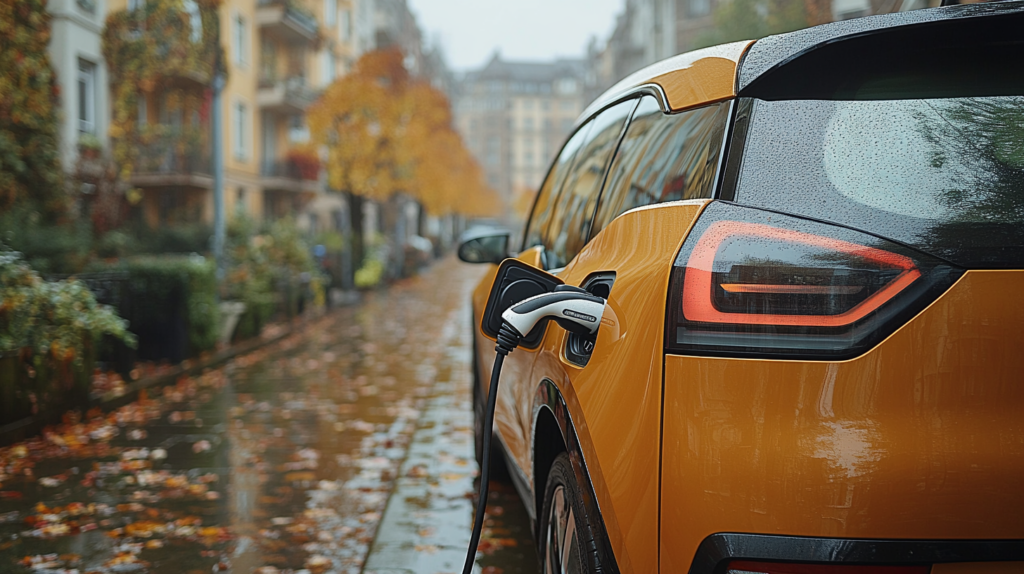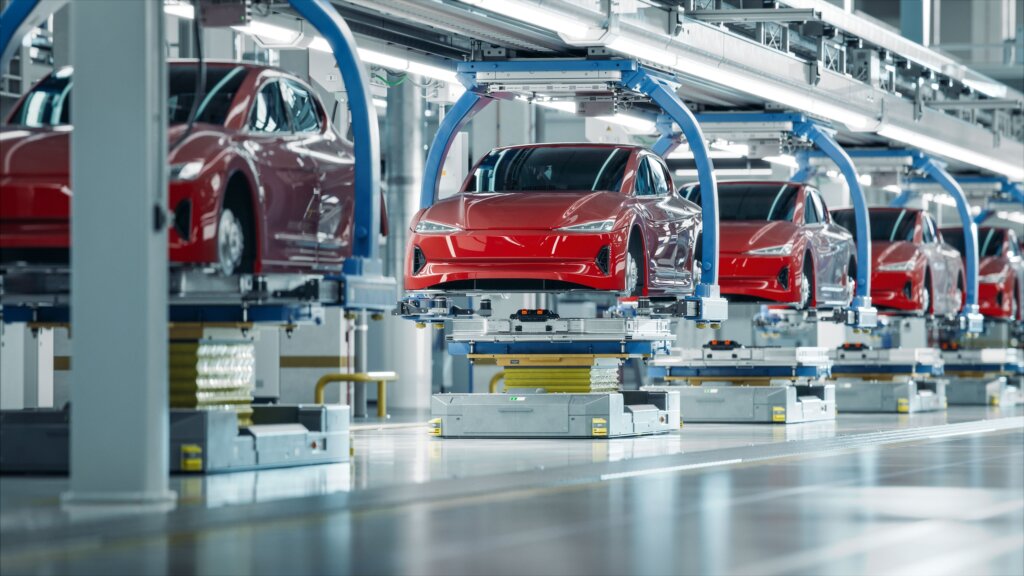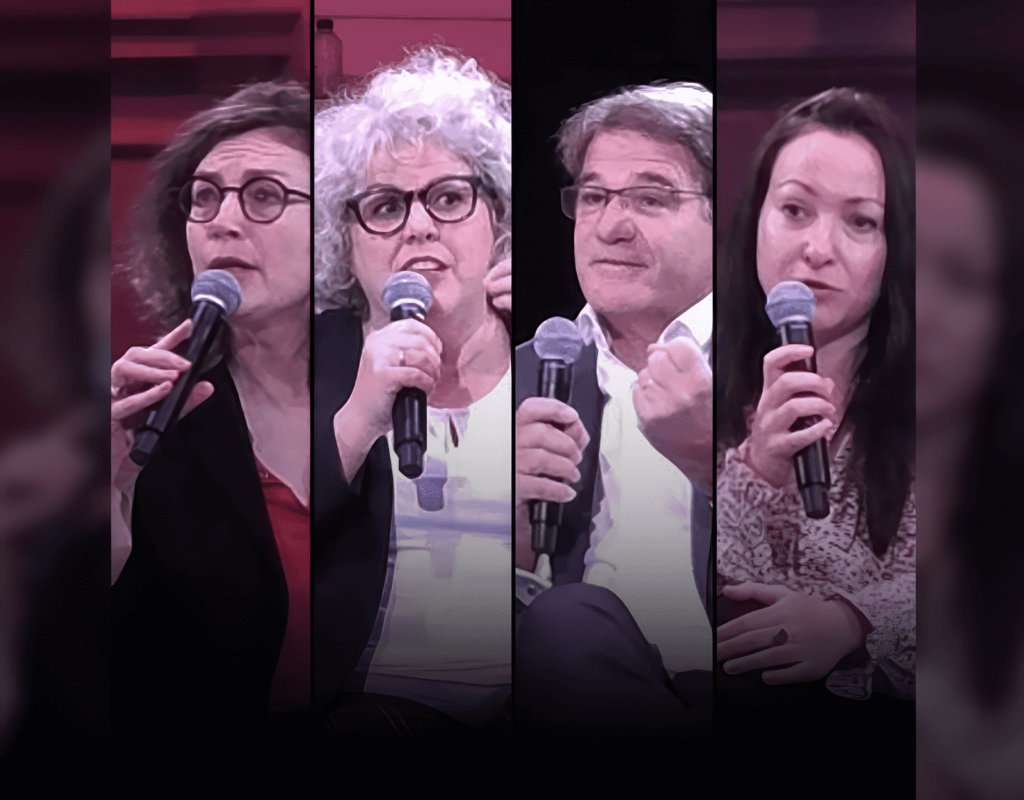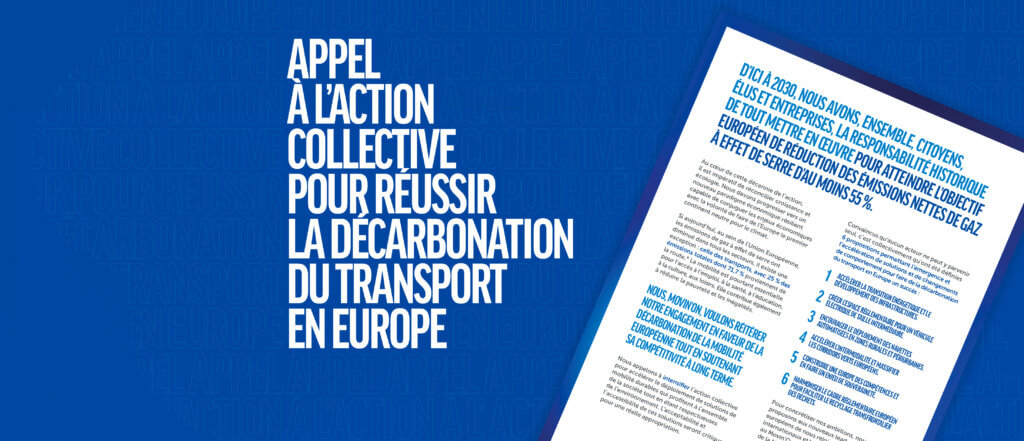Poised to Proliferate: Electric Roads Charge EVs on the Go
In the tiny Israeli beach town of Beit Yanai on the eastern shore of the Mediterranean Sea, to date untouched by the bombs that hit Israel and Gaza over the past 10 days, is the headquarters of a pioneer developer of wireless in-road charging systems – systems that power EVs as they roll with electricity generated by coils beneath the pavement.
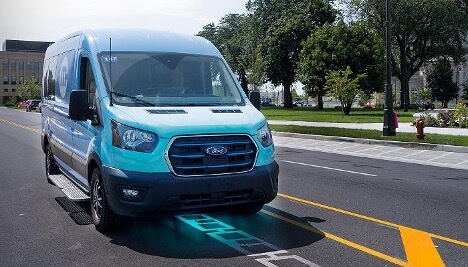
In the tiny Israeli beach town of Beit Yanai on the eastern shore of the Mediterranean Sea, to date untouched by the bombs that devastated Israel and Gaza over the past 10 days, is the headquarters of a pioneer developer of wireless in-road charging systems – systems that power EVs as they roll with electricity generated by coils beneath the pavement.
Electreon Wireless Ltd., co-founded in 2013 by Oren Ezer, now chairman and CEO, and Hanan Rumbak, now chief scientist, collaborates with cities and fleet operators to enable cost-effective electrification of public, commercial, and autonomous fleets.
Electreon’s proprietary charging system includes underground infrastructure, in-vehicle technology, and advanced charging management software. A management unit transfers power from the electricity grid to the in-road wireless charging coil segments when an authorized vehicle is directly above an in-road segment.
The Electreon system places inductive electrical infrastructure beneath the road surface that charges vehicles as they drive, through an electrical receiver fitted underneath the vehicle.
With this system, EVs can take a charge quickly and safely either while driving or while parked, eliminating range anxiety, lowering total costs of EV ownership, and meeting reduced battery demand with smaller, lighter batteries.
The system is compatible with all types of electric vehicles, a major asset that has vaulted wireless electric charging to the top of priority lists across the world.
Electreon operates 15 projects across seven countries, together with more than 100 partners, a system that’s increasingly popular since the company’s wireless charging technology was named one of the world’s top 100 inventions for 2021 by “Time” magazine.
China Allows Electreon Access to Shandong
Earlier this month, Electreon entered the Chinese market in a big way. An October 3 Memorandum of Understanding (MoU) between Electreon and the Shandong Innovation and Entrepreneurship Community for International Science and Technology Cooperation (SITEC) paves the way for the introduction of Electreon electric roads in Shandong province, the second largest province in China.
SITEC is a provincial science and technology innovation arm led by Shandong Hi-Speed Group, a Fortune 500 state-owned capital investment company that handles transport infrastructure construction services, building highways, expressways, bridges, railways, and harbors, and developing real estate.
Signing the MoU, Electreon CEO Oren Eze, said, “This strategic collaboration with SITEC marks a significant leap forward in Electreon’s mission to electrify transportation worldwide. Shandong province, being the world’s electric vehicle manufacturing hub, is the ideal location to launch our innovative wireless charging technology in China. We are excited to partner with SITEC to introduce our cutting-edge wireless charging solutions to the pioneering Chinese market, ultimately contributing to the sustainable transformation of transportation in China and beyond.”
Phase one of the partnership, from the fourth quarter 2023, will feature the debut of Electreon’s wireless in-road charging at the Jinan Shandong Hi-Speed industrial park where it may later be used to transport SITEC personnel within the park.
Under the agreement, Electreon will integrate its technology with vehicles from the one of China’s biggest bus manufacturers, Zhongtong Bus. This first deployment will showcase the innovative technology to clients, partners and other stakeholders for the first time.
SITEC’s Chairman, Shang Min, confirmed the partnership, saying, “SITEC is committed to fostering innovation and advancing sustainable transportation solutions both domestically and internationally. We believe that Electreon’s wireless Electric Road technology has the potential to revolutionize EV charging infrastructure in China. This partnership aligns perfectly with our mission of innovation and sustainability, and we are eager to work alongside Electreon to make this vision a reality in Shandong province and beyond.”
Under this collaborative initiative, Electreon will also establish a Chinese subsidiary company and employ local talents to bolster its presence in the strategically important Chinese market.
During the second phase of the Electreon-SITEC partnership, the partners will deploy tens of kilometers of Electreon’s electric road technology, hundreds of stationary charging stations, and install the company’s technology on several hundred urban electric buses in Liaocheng City, in the west of Shandong province.
Beyond this initial commercial project, Electreon and SITEC are committed to fostering commercial business projects across the province and beyond.
In the third phase, the partners will launch a wireless charging project for electric trucks operating within the Weifang Port, along with the integration of Electreon’s technology into Sinotruk vehicles, the country’s largest truck manufacturer, owned by the China National Heavy Duty Truck Group.
Additionally, the partners will collaborate to expand the portfolio of electric fleet operator clients, cooperate with EV manufacturers and original equipment manufacturer partners to develop projects tailored to meet the operational needs of fleets throughout China.
Electreon already has projects in the United States, Israel, Germany, Italy, and Sweden. Over the past year, the company has signed deals for more projects in Germany, its first project in France, and another in Norway.
Sweden Was First
Sweden was first in the world to install an electric roadway. Smartroad Gotland, the pilot project on the holiday island of Gotland, transformed a 1.6 km stretch of road between the Visby Airport and the city of Visby, a Swedish eco-municipality in the middle of the Baltic Sea.
The project is being conducted by the consortium for Smartroad Gotland, under the leadership of Electreon AB. It is financed by the Swedish Transport Administration (Trafikverket) as part of the Swedish government’s electric road strategy to reduce CO2 emissions from road haulage.
Now an electric passenger bus shuttles to and from the airport, and a heavy-duty truck demonstrate how they take a charge from the electric road.
The success of the e-roadway on Gotland is likely to prompt an expansion of 3,000 km of electric roads in Sweden by 2035.
ENRX is a new brand based in Skien, Norway with long experience in wireless inductive charging and heating, and contactless power supply. With offices in Vienna, Brazil, India, and China, the company says it has driven more than 25 million km on wireless electric roadways with low or no carbon footprint.
ENRX wireless charging solutions already power numerous heavy-duty vehicles in Europe. The system extends electric vehicle range, eliminates frequent charging station stops, and reduces reliance on large battery capacities, leading to lighter, cost-effective battery packs.
States of Michigan, Indiana Explore Wireless Charging
In February 2022, Michigan Governor Gretchen Whitmer, in coordination with the Michigan Department of Transportation, the Michigan Office of Future Mobility and Electrification and the Michigan Economic Development Corporation, announced that Electreon had won a tender to deploy a one mile (1.61 km) wireless electric road system in downtown Detroit, as part of Michigan Central Station, a new mobility innovation hub being developed around Detroit’s old central rail depot in partnership with Ford, the City of Detroit, and the State of Michigan.
“Michigan is leading the future of advanced manufacturing, especially in mobility and electrification,” said Governor Whitmer. “Let’s keep defining and building the future.”
Scheduled for construction within the next year, the project will be North America’s first public electric road system for wireless charging of electric vehicles and will include stationary wireless charge points as well.
In addition to market entry into the United States, the pilot aims to showcase the viability and effectiveness of wireless charging on public roads for multiple vehicle types and uses such as transit buses, passenger shuttles, and last-mile delivery trucks.
The pilot will also serve as a potential first step towards much larger electric road systems being considered in multiple U.S. states and aims to build partnerships with U.S. based vehicle and infrastructure companies to serve as a blueprint for future collaboration and growth.
The Indiana Department of Transportation and Purdue University have just announced plans to develop the world’s first contactless wireless-charging concrete pavement highway segment.
The project will use innovative magnetizable concrete, developed by German startup Magment GmbH, enabling wireless charging of electric vehicles as they drive.
“Indiana is known as the Crossroads of America and we’re committed to fortifying our position as a transportation leader by innovating to support the emerging vehicle technology,” Governor Eric Holcomb said. “This partnership to develop wireless charging technology for highways sends a strong signal that Indiana is on the leading edge of delivering the infrastructure needed to support the adoption of electric vehicles.”
The project is part of the Advancing Sustainability through Power Infrastructure for Road Electrification (ASPIRE) Initiative, an engineering research center funded by the National Science Foundation. It brings universities, government laboratories, businesses, and other stakeholders into collaboration to develop next-generation charging technologies.
“The field of transportation is in the midst of a transformation not experienced since the invention of the automobile,” said Nadia Gkritza, professor of civil engineering and agricultural and biological engineering and ASPIRE campus director at Purdue University. “Through this research, we envision opportunities to reduce emissions and near-road exposures to pollutants, coupled with other transportation innovations in shared mobility and automation that will shape data-driven policies encouraging advances.”
“We’re quite eager to see this first of its kind project unfold in Indiana,” said David Christensen, ASPIRE Innovation Director. “This partnership that includes Magment, INDOT, Purdue University, and the larger ASPIRE consortium has great promise to really move the needle on technology development, which will, in turn, enable more positive impacts from deeper electric vehicle adoption.”
U.S. Government Considers Electric Road Grants
In July, U.S. Congresswoman Haley Stevens, a Michigan Democrat, introduced the Wireless Electric Vehicle Charging Grant Program Act of 2023, to expand wireless EV charging programs at the federal level.
“Dynamic wireless charging has tremendous potential in revolutionizing how EVs charge and can enable widespread adoption of EVs by addressing some of the biggest challenges associated with electrification,” said Congresswoman Stevens. “Investing in new EV technologies is crucial to enhancing America’s global competitiveness.”
“Michigan is innovating our EV future, and making charging easier for consumers is the next step. Investing in new electric vehicle technologies is crucial to enhancing America’s global competitiveness. Wireless charging can reduce battery size and cost, extend driving range, reduce pressure on the electric grid, and enable the electrification of autonomous vehicles,” Stevens said. “We must continue to expand upon the success of the Inflation Reduction Act and the Bipartisan Infrastructure Act to achieve a cleaner and greener future for all Americans.”
The new law would create a dedicated grant program in the U.S. Department of Transportation, providing funding for wireless EV charging projects. It offers US$250 million in grants for wireless EV charging initiatives such as roads, parking lots, bus routes, airports, as well as coastal and inland ports.
Toute l’actualité de Movin’On
dans votre boîte mail
Auteur
Partager
Tweets de @movinonconnect
Movin'On 2035 TODAY EP02 - Circular Economy & Competitivity
Movin’On 2035 TODAY EP01 – Fair Mobility for All https://x.com/i/broadcasts/1yNxagBrWZbGj
✨ THAT'S A WRAP!
Movin'On Summit 2024 has just concluded in Brussels!
More than 350 leaders and experts in sustainable mobility gathered to exchange ideas, collaborate, and share their vision for desirable and decarbonised mobility in Europe. Together, we explored ways to build…
🔴 Live from #MovinOnSummit2024
@AshaSumputh has just invited Denis Machuel, CEO at @AdeccoGroup and Florent Menegaux, President of the @Michelin Group & President of Movin'On
L’actualité de la mobilité durable
Découvrez les dernières tendances, des analyses thématiques et nos prochains rendez-vous

